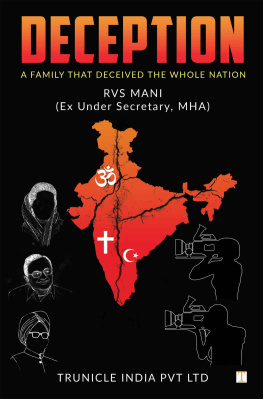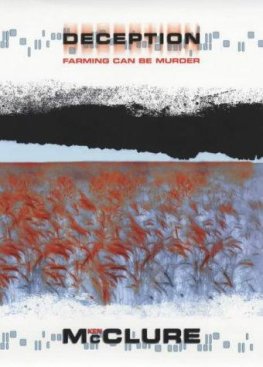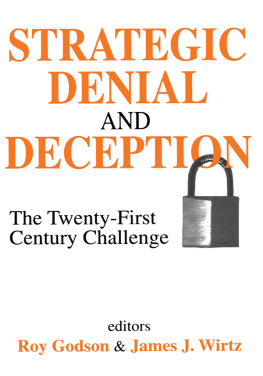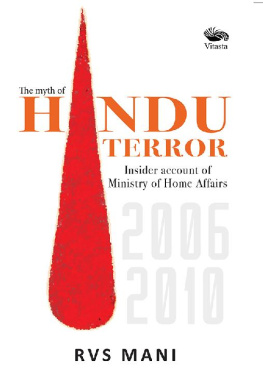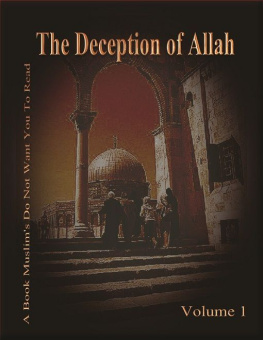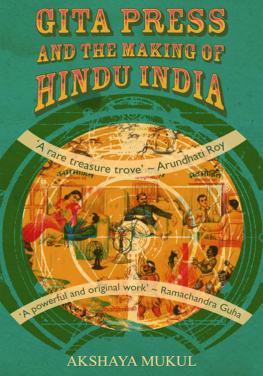
Notion Press Media Pvt Ltd No. 50,
Chettiyar Agaram Main Road, Vanagaram, Chennai, Tamil Nadu 600 095 | 
Trunicle India Pvt Ltd 1703,
Kesar Symphony Chs Ltd, Plot No 29, Sector 19, Kharghar Navi Mumbai
Raigad - 410210 |
Co-Published by Notion Press 2021
Copyright Trunicle India Pvt Ltd 2021
All Rights Reserved.
eISBN 978-1-63873-567-0
This book has been published with all efforts taken to make the material error-free after the consent of the author. However, the author and the publisher do not assume and hereby disclaim any liability to any party for any loss, damage, or disruption caused by errors or omissions, whether such errors or omissions result from negligence, accident, or any other cause.
While every effort has been made to avoid any mistake or omission, this publication is being sold on the condition and understanding that neither the author nor the publishers or printers would be liable in any manner to any person by reason of any mistake or omission in this publication or for any action taken or omitted to be taken or advice rendered or accepted on the basis of this work. For any defect in printing or binding the publishers will be liable only to replace the defective copy by another copy of this work then available.
This book is dedicated to my parents Lakshmi and K.R. Ramaswamy and my father in law Late K. S. Venkatachalam who have been the source of inspiration and support to me in standing up to the truth

Kalyan bought this picture of Chamunda Devi on his
visit to the temple
Disclaimer

This is a work of fiction. All the characters in the book are fictional and imaginary. Any identification with any person living or dead is purely coincidental.
Acknowledgment

At the outset, I have to place on record my sincere thanks to the entire team of Trunicle, especially Annant Srivastava and Amit Pandey who were instrumental in generating the idea that I should write this book, Manish Pandey for overlooking the entire process of publication.
My dear wife Sita V.S. Mani has helped in the characterization and iterations of the scene in this work and I am extremely grateful for her contribution.
Two terms in Sanskrit mean to represent the loosely the same word in spirit. But since the advent of modern times, the relationships representing these two terms have had largely opposite experiences. The words are Sutha meaning daughter and Snushaa used for daughter in law but loosely means the other daughter. I do not want to dwell upon the extracts of the term, but surely my family treats them both as daughters. My daughter-in-law has also risen to every occasion. She is Smt Pavitra Narayanan Aditya, who is a Management Graduate from a very pioneer institute has immensely been involved with this book and made her valuable contribution.
I cannot make out whether the current scenario of Work from home in these times of lockdown is a vice or a virtue. But surely that meant a lot of time for my son Aditya to be talking to us although they stay in Chandigarh. During these family talks, a lot of discussions used to take amongst us and Adytas contributions have also been very valuable.
Prologue

Rajan or Raja was the first manifestation of Governance in the world. The code of Governance is known as Raja Dharma. One of the earliest known treatises on Governance is the Kautilyas Arthashastra. In this, it is laid down that seven elements are essential for Governance known as Saptangas. Amongst this seven, the Amatya is an important element of the Saptanga concept in Arthasashtra of Kautilya. Amatya largely represents the modern bureaucracy of today. The king rules through a piece of elaborate administrative machinery. Amatya stands for the higher echelons of administration that form an inner cabinet. The Prime Minister and the High Priest are the most important ministers. In times of emergency, Kautilya asks the king to consult the members of a wider council of ministers. The Inner Cabinet assists the king to appoint the ministers and the executive heads of departments. The important ministers in Arthshastra include the priest, the prime minister, the commander of the Army, the Treasurer General, and the Collector General
Hence bureaucracy has been an essential element over the ages. In the 20 th Century, it was further brought out through a theoretical orientation by Max Weber, a German scientist, defining bureaucracy as a highly structured, formalized, and also impersonal organization. He also instituted the belief that an organization must have a defined hierarchical structure and clear rules, regulations, and lines of authority which govern it.
Hence, it can be well extended that bureaucracy is an essential element to deliver governance to the people irrespective of the type of governance whether, monarchy, or democracy or autocracy, or tyranny. In this context, over the modern and post-modern era, there has been the development of democracy and peoples will as the underlying model of the ruling. This essentially means Government is trust and the people exercising the mandate of governance are dispensing with Governance with a single point focus on the welfare of the people governed at large including the lowest placed citizen. The principle of No quid quo against Tax Paid reinforces this. At the same time, the bureaucracy should act as the agent of the people whose will they are serving and pursuing. This requires the highest level of integrity commitment, a sense of service, and lastly willingness to listen to the citizens. We in India as in many other countries of the world hence give the title of Government Servant or Public Servant. This can be seen from the terminology used in our Constitution which most paramount relates to services under the Government under Articles 309., which is recalled below:
309: Recruitment and conditions of service of persons serving the Union or a State:- Subject to the provisions of this Constitution, Acts of the appropriate legislature, may regulate the recruitment and conditions of services of persons appointed to the public services and posts in connection with the affairs of the Union or any State Provided that it shall be competent for the President or such persons as he may direct in case of services and posts in connection with affairs of the Union and for the Governor (***)of a state or such persons as the case on with affairs of the state to make rules regarding recruitment and may be direct in the case of services and posts in connection with affairs of the State, to make rules regarding recruitment and conditions of service of persons appointed to such services and posts until provision in that behalf is made by or under an Act of the appropriate legislature under this article and any rules so made shall have the effect of subject to the provisions of any such Act.
The above provision is omnibus for all services under the Union or the State. There may be separate Articles and provisions under the Constitution providing for separate institutional mechanisms like the Secretariat of Parliament and the State Legislature, or the Comptroller and Auditor General of India, Central Election Commission, Judiciary, UPSC different tribunals, etc. Some of the rules made under these separate Articles specific to these institutions and conditions of service may be notified but the spirit of certain rules as notified as Fundamental Rules, Conduct Rules are omnibus in nature.

